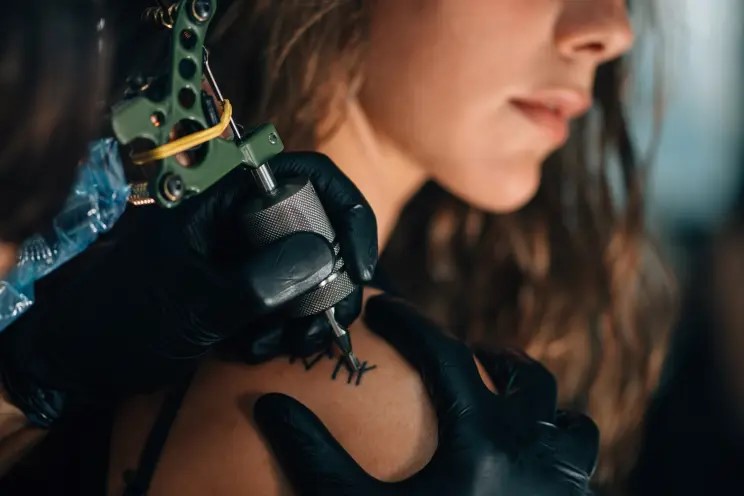Hello!
New research suggests that there may be a link between tattoos and cancer. But the findings have proved controversial, with experts pushing back against the authors' conclusions, which they characterize as exaggerated.
The study, published last month in the journal eClinicalMedicine, surveyed close to 12,000 people in Sweden, examining every subject 20 to 60 years old that was diagnosed with a form of cancer called lymphoma between 2007 and 2017. When compared to a control group of random people who never had lymphoma, the researchers found that people that had at least one tattoo were 21 percent more likely to have developed the cancer.
 The study only demonstrates that there's an association, not a definitive link. Still, 21 percent would constitute a pretty significant risk, especially for a form of cancer that's considered somewhat rare. What's more, it appears that the number or size of tattoos the subjects had didn't matter: so long as they had at least one tattoo of any size, they were seemingly at risk as much as someone who had multiple.
The study only demonstrates that there's an association, not a definitive link. Still, 21 percent would constitute a pretty significant risk, especially for a form of cancer that's considered somewhat rare. What's more, it appears that the number or size of tattoos the subjects had didn't matter: so long as they had at least one tattoo of any size, they were seemingly at risk as much as someone who had multiple.
"We do not yet know why this was the case. One can only speculate that a tattoo, regardless of size, triggers a low-grade inflammation in the body, which in turn can trigger cancer," co-author Christel Nielsen, an associate professor in the Division of Occupational and Environmental Medicine at Lund University, said in a statement about the work "The picture is thus more complex than we initially thought."
Many experts, however, are skeptical that there's even an association, let alone a link.
"If I were writing that paper, if I were the editor, I would have said the conclusion is, there is no evidence for a strong association," Timothy Rebbeck, an epidemiologist at Dana-Farber Cancer Institute, told CNN, calling the findings "overstated."
Lymphoma causes infection-fighting white blood cells in the lymph system, a network of organs and vessels that form a critical part of the body's immune response, to divide uncontrollably. The problem with identifying a link — or even just an association — with the cancer is that scientists don't actually know what causes it. And according to Rebbeck, lymphoma's main risk factors aren't found in tattooing, either.
 Due to the limited nature of the study, it's also unclear if there's other lifestyle factors at play that could explain the uptick in lymphoma among the tattoo recipients. Obvious cancer risks like smoking and age were controlled for, but there could be other factors at play that aren't being addressed here.
Due to the limited nature of the study, it's also unclear if there's other lifestyle factors at play that could explain the uptick in lymphoma among the tattoo recipients. Obvious cancer risks like smoking and age were controlled for, but there could be other factors at play that aren't being addressed here.
That isn't to exonerate tattooing completely. Any practice that draws blood is bound to come with its health and hygiene risks, and there's some fears that certain forms of tattoo ink may contain possible carcinogens. But by and large, tattooing is considered safe. So as long as you trust your artist, you should be alright.
"I don't believe that anybody who has a tattoo should freak out right now," Erwin Grussie, a hematologist and oncologist at Providence St. Joseph's Medical Center, told ACB7. "I don't think it means somebody who has a tattoo will develop lymphoma. We should wait for more data."
Also read:
- MyStalk – The Ultimate Anonymous Instagram Viewer
- Does Walmart Take Apple Pay?
- People Are Getting Their Eyeballs Tattooed
Thank you!
Join us on social media!
See you!






